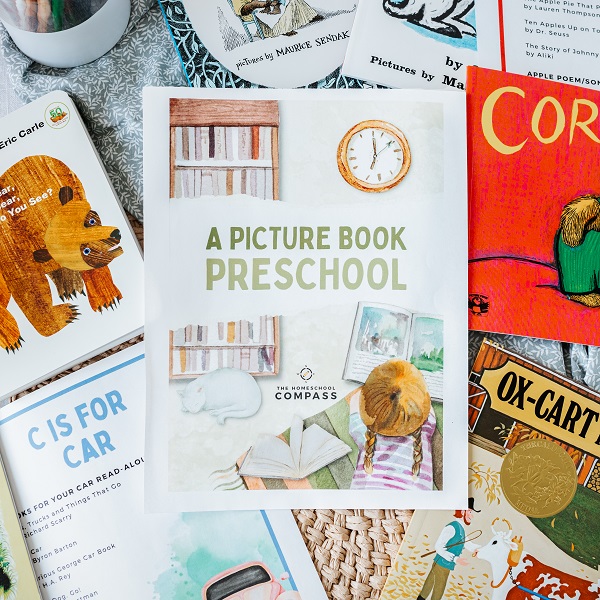Preschoolers are some of my favorite people. They are full of energy, they’re naturally inquisitive, and they’re not afraid to let you know how they really feel. While their short attention spans and boundless enthusiasm may mean they aren’t able to engage with a formal math curriculum, that doesn’t mean you can’t provide them with a strong math foundation that will serve them in later years.
Follow your child’s passions
When my son was in preschool, he was obsessed with trains. He spent countless hours putting together his wooden train tracks. His train play provided the perfect backdrop for math learning. We counted his toy trains, we sorted them by color, we tried to build the longest possible train track and counted how many track pieces we had used.
My daughter’s passion lay with her stuffed animals. We lined them up and pretended they were riding on the bus. Then we talked about which animal was first, second, third or fourth. We counted them by ones, twos and fives. We sorted them by type and counted how many were in each category. We put them in order from largest to smallest.
We didn’t do these informal math activities every day, and I certainly didn’t emphasize that we were doing school. But by joining my children in their play and incorporating number skills, we were able to build math literacy in fun and developmentally appropriate ways.
Bring math into your everyday life.
Your daily routine provides plenty of opportunities to practice foundational math skills. Once you get in the habit of counting, comparing and sorting your way through the day, you’ll be surprised at how many chances you get to seamlessly weave these math concepts into your life.
The kitchen provides many situations ideal for real-life math practice. As we made peanut butter and jelly sandwiches, we practiced cutting them in halves or quarters. Or we cut them into different shapes – circles, rectangles, squares, or triangles. I gave my son a handful of crackers or grapes or apple slices and asked him to divide them evenly between the members of the family. I asked my daughter to set the table and count how many knives, forks and spoons we would need. We baked together and compared the difference between a half, a third and a quarter of a cup.
Folding and putting away laundry became an exercise in sorting and matching. A trip to the mailbox meant counting the squares on the sidewalk or the houses we passed. On particularly trying nights when we just couldn’t wait for Dad to get home, we would sit at the window at a quarter till six and count how many vehicles passed by before we saw the familiar family car coming down the road.
All this math talk shows your little ones that numbers are important to our world and gives them the repetition they need to reinforce basic math concepts.
Combine math and movement.
Young children seldom stop wiggling, but this movement doesn’t need to stop in order for math learning to take place. My children loved it when I would time how long it took them to run around the house. I didn’t need a stop watch – I just counted! As I counted the seconds out loud for lap after lap, they got practice with counting and comparing numbers to see which one is larger or smaller.
When we climbed the stairs to our apartment, we often counted them. It became a fun habit that my kiddos grew to expect. They didn’t find the repetition boring; in fact, they viewed it as an entertaining game even though the result was always the same (fourteen steps again!).
Ask general questions like “How many times can you hop on one foot? Bounce a ball? Touch your toes?” as well as questions where the child needs to stop at a fixed number such as “Can you do five bunny hops? Three jumping jacks?” Open-ended counting and learning to count to a specific number are both important math skills for preschoolers.
Cuddle up and read
Read aloud time is important to your child for so many reasons, but when you choose a math-related book, you can increase literacy skills and math competence at the same time.
Check math books out from the library. Your librarian should be able to help you locate books on numbers, colors, shapes, telling time, patterns, measurement, and sorting.
Here are some math-themed picture books that are sure to engage your little ones!
- Chicka Chicka 1, 2, 3 by Bill Martin and Michael Sampson
- Feast for Ten by Cathryn Falwell
- Mouse Count by Ellen Stoll Walsh
- Ten Black Dots by Donald Crews
- Ten Red Apples by Pat Hutchins
- Lots and Lots of Zebra Stripes: Patterns in Nature by Stephen R. Swinburne
- A Color of His Own by Leo Lionni
- Bear Sees Colors by Karma Wilson
- Shape by Shape by Suse MacDonald
Check out A Picture Book Preschool, our printable preschool program to help you savor the early years by enjoying beautiful stories, songs, and activities together! Available now at Christianbook.
